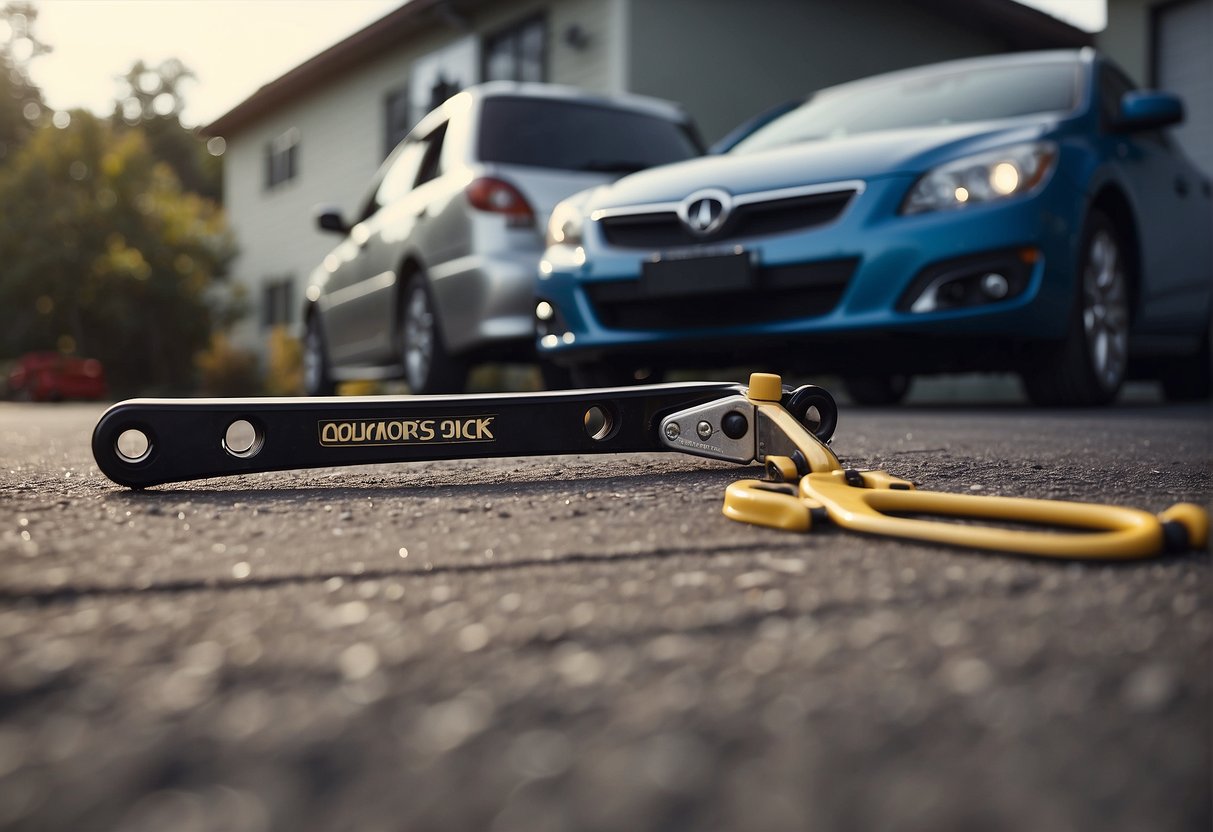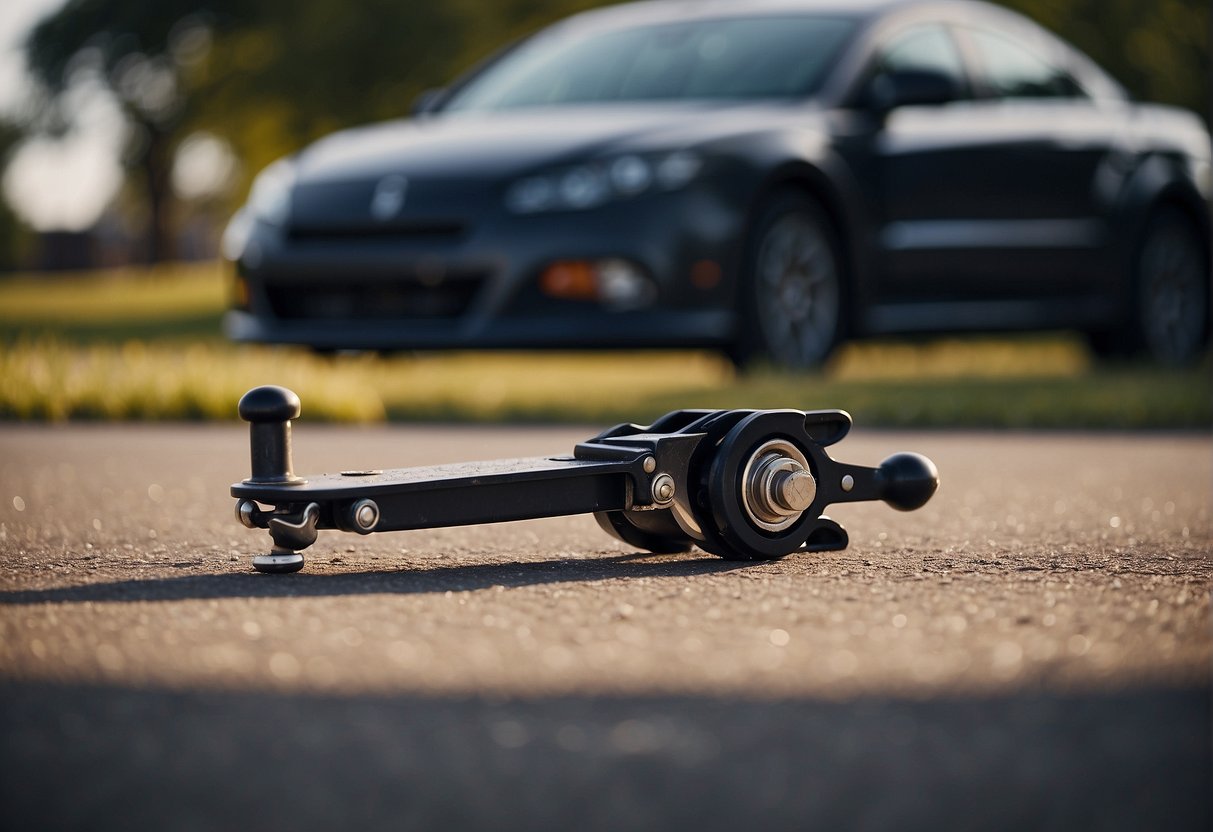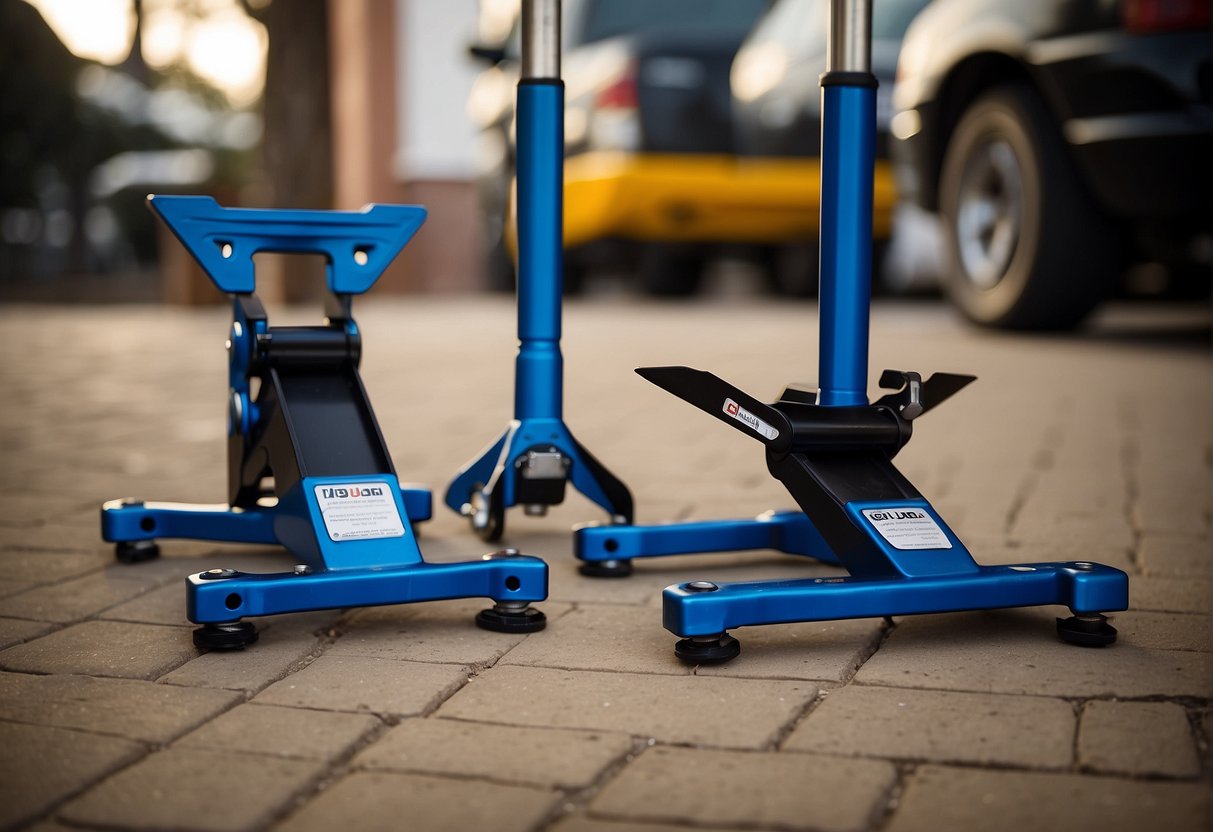When it comes to lifting a vehicle, choosing the right jack is essential. Scissor jacks and floor jacks are two of the most common types of jacks available. While both types of jacks serve the same purpose, they have significant differences in terms of design, functionality, and suitability for different applications.
Scissor jacks are compact and lightweight, making them an ideal choice for emergency situations. They are often included with the vehicle by the manufacturer and can be used to change a tire or perform minor repairs. On the other hand, floor jacks are larger and more powerful, making them suitable for heavy-duty applications. They use hydraulic power to lift the vehicle and can lift higher than scissor jacks. However, they are also more expensive and require more storage space.
Understanding Scissor Jacks
As a car owner, it’s essential to have a reliable jack to lift your vehicle when needed. Scissor jacks are a popular choice for light vehicles due to their lightweight and portable nature. In this section, I will discuss the design and mechanics, portability and convenience, and suitability for light vehicles of scissor jacks.
Design and Mechanics
Scissor jacks are a type of mechanical jack that uses a simple scissor mechanism to lift a vehicle. The scissor mechanism consists of a series of hinged bars that are connected in a criss-cross pattern. When the jack handle is turned, the scissor mechanism expands, lifting the vehicle off the ground. The scissor jack’s design allows it to be compact and lightweight, making it an ideal choice for light vehicles.
Portability and Convenience
One of the main advantages of a scissor jack is its portability. Due to its lightweight and compact design, a scissor jack can be easily stored in the trunk of a car and taken on the go. Additionally, scissor jacks are easy to use and require minimal effort to lift a vehicle. However, scissor jacks do require a flat and level surface to operate effectively.
Suitability for Light Vehicles
Scissor jacks are best suited for light vehicles, such as sedans and small SUVs. They are not recommended for larger vehicles, such as trucks or vans, as they may not be able to lift the weight of the vehicle. Additionally, scissor jacks are not suitable for tire changes, as they do not provide enough clearance to remove the tire.
In summary, scissor jacks are a reliable option for light vehicles due to their lightweight and portable nature. They are easy to use and require minimal effort to lift a vehicle. However, they are not suitable for larger vehicles and tire changes.
Exploring Floor Jacks
As a mechanic, I have worked with a variety of jacks, and floor jacks are a popular choice for lifting vehicles. Floor jacks are hydraulic jacks that are designed to lift heavy vehicles with ease. In this section, I will explore the hydraulic system, stability and weight capacity, and garage and professional use of floor jacks.
Hydraulic System
Floor jacks use hydraulic fluid to lift heavy vehicles. The hydraulic system consists of two pistons, a small and a large one. The small piston creates the force that is transmitted via the hydraulic fluid to the larger piston. The larger piston then pushes a crank that is connected to the lift pad. This system allows floor jacks to lift heavy vehicles with ease.
Stability and Weight Capacity
Floor jacks are designed to be stable and have a high weight capacity. They have a wide base that provides stability when lifting heavy vehicles. The weight capacity of floor jacks varies, but most can lift up to 3 tons. It is important to choose a floor jack that has a weight capacity that is appropriate for the vehicle you are lifting.
Garage and Professional Use
Floor jacks are commonly used in garages and by professionals. They are designed to be durable and withstand heavy use. Many floor jacks have a low profile, which allows them to fit under low-clearance vehicles. They are also designed to be portable, which makes them easy to move around the garage.
In conclusion, floor jacks are a popular choice for lifting heavy vehicles due to their hydraulic system, stability and weight capacity, and garage and professional use. When choosing a floor jack, it is important to consider the weight capacity and the type of vehicle you will be lifting.
Comparative Analysis
When it comes to choosing between a scissor jack and a floor jack, there are several factors to consider. In this section, I will compare the two types of jacks based on their lifting power and efficiency, durability and maintenance, and cost and value.
Lifting Power and Efficiency
Floor jacks are generally more powerful and efficient than scissor jacks. They use hydraulic pressure to lift heavy vehicles, which means they can lift a car or truck much faster and with less effort. Scissor jacks, on the other hand, are manual and require more physical effort. They are best suited for smaller vehicles and lighter loads.
Durability and Maintenance
When it comes to durability and maintenance, both types of jacks have their pros and cons. Floor jacks are typically heavier and sturdier, which makes them more durable and long-lasting. They also require less maintenance than scissor jacks. However, they can be more expensive and may not be as portable as scissor jacks.
Scissor jacks, on the other hand, are lightweight and portable, making them ideal for emergency situations. They are also easier to store and maintain than floor jacks. However, they are not as durable as floor jacks and may need to be replaced more frequently.
Cost and Value
When it comes to cost and value, scissor jacks are generally more affordable than floor jacks. They are a good option for those on a tight budget or who only need a jack for occasional use. Floor jacks, on the other hand, are more expensive but offer better value in the long run. They are heavy-duty and can lift heavier loads, making them a worthwhile investment for those who need a jack for regular use.
In conclusion, the choice between a scissor jack and a floor jack depends on your specific needs and budget. If you need a jack for occasional use or for smaller vehicles, a scissor jack may be the best option. However, if you need a heavy-duty jack for regular use or for lifting heavier loads, a floor jack is the better choice.
Practical Considerations
Ease of Use
When it comes to ease of use, both scissor jacks and floor jacks have their own advantages and disadvantages. Scissor jacks are generally simpler to operate and require less space to store. They are also lighter and more portable than floor jacks. On the other hand, floor jacks are easier to use in terms of lifting the vehicle because they have a longer handle to provide more leverage.
Safety Features
Safety is an important consideration when choosing between scissor jacks and floor jacks. Both types of jacks have their own safety features. Scissor jacks usually have a positive release lever that allows for quick and easy lowering of the vehicle. Floor jacks, on the other hand, have a valve that can be used to control the speed of the descent, making them safer to use.
Versatility for Different Vehicles
When it comes to versatility, floor jacks are the clear winner. They are available in a range of sizes and capacities, making them suitable for different types of vehicles. Scissor jacks, on the other hand, are usually designed for use with smaller vehicles, such as cars and light trucks. If you have a larger vehicle, such as an SUV or a pickup truck, you may need to use a floor jack to lift it safely.
In conclusion, when choosing between scissor jacks and floor jacks, it is important to consider practical factors such as ease of use, safety features, and versatility for different vehicles. While scissor jacks may be simpler to operate and more portable, floor jacks are generally easier to use and more versatile.
Conclusion
After comparing the benefits and drawbacks of scissor jacks and floor jacks, I have come to the conclusion that the choice between the two depends on the user’s specific needs and preferences.
Floor jacks are more versatile and can lift heavier loads, making them ideal for professional mechanics and those who work with larger vehicles. They are also more expensive than scissor jacks, but their durability and long lifespan make them a worthwhile investment.
On the other hand, scissor jacks are more affordable and portable, making them a popular choice for those who need to change a tire or perform basic maintenance on their vehicle. They are also easier to store and transport, as they take up less space than floor jacks.
When it comes to equipment, both scissor jacks and floor jacks require some level of maintenance to ensure proper functioning. However, scissor jacks are simpler in design and have fewer moving parts, making them easier to maintain.
In terms of portability, scissor jacks are the clear winner. They are lightweight and compact, making them easy to store in a trunk or under a seat. Floor jacks, on the other hand, are heavier and bulkier, making them less portable and more difficult to transport.
Overall, the choice between a scissor jack and a floor jack ultimately comes down to personal preference, budget, and specific needs. Both types of jacks have their advantages and disadvantages, and the decision should be based on what works best for the user’s individual situation.
Frequently Asked Questions
What are the pros and cons of using a scissor jack compared to a floor jack?
Scissor jacks are lightweight, portable, and affordable. They are convenient to operate and require minimal maintenance. However, they have limited usage, are time-consuming, and are fragile. On the other hand, floor jacks are versatile, durable, and maneuverable. They have a higher lifting capacity and are faster to operate. However, they are heavy, bulky, and more expensive than scissor jacks.
How do the prices of scissor jacks and floor jacks typically compare?
Scissor jacks are generally less expensive than floor jacks. The price of a scissor jack can range from $20 to $100, while a floor jack can cost between $100 to $500 or more. However, the price of a jack depends on its quality, lifting capacity, and features.
Can a scissor jack be safely used to lift and support an SUV?
Scissor jacks are not recommended for lifting and supporting an SUV or any other heavy vehicle. They are designed for use with smaller cars and light-duty vehicles. Using a scissor jack on an SUV can be dangerous and can cause the vehicle to tip over. It is advisable to use a floor jack or a hydraulic jack with a higher lifting capacity for lifting and supporting an SUV.
What are the main disadvantages of using a scissor jack for car maintenance?
The main disadvantages of using a scissor jack for car maintenance are its limited lifting capacity and fragility. Scissor jacks are not suitable for lifting heavy vehicles or for prolonged use. They can also be easily damaged if not used properly. Additionally, scissor jacks require more effort and time to operate than floor jacks.
Is it advisable to use a scissor jack in conjunction with jack stands?
It is not advisable to use a scissor jack alone to support a vehicle. Scissor jacks are designed for lifting and not for supporting a vehicle for an extended period. It is recommended to use a scissor jack in conjunction with jack stands to ensure stability and safety. Jack stands provide a secure base for the vehicle while the scissor jack is used for lifting.
How does the reliability of scissor jacks compare to hydraulic jacks?
Hydraulic jacks are generally more reliable than scissor jacks. Hydraulic jacks are designed to lift heavier loads and have a higher lifting capacity than scissor jacks. They are also more durable and require less maintenance than scissor jacks. However, hydraulic jacks are more expensive than scissor jacks and are not as portable.

Hi, I’m Sal Muller of Tooltrip.com. My DIY experience led me to understand essential power tools for home projects. Tooltrip.com guides enthusiasts and professionals in choosing right tools for any job. I provide concise top tool reviews for easier, efficient DIY.




